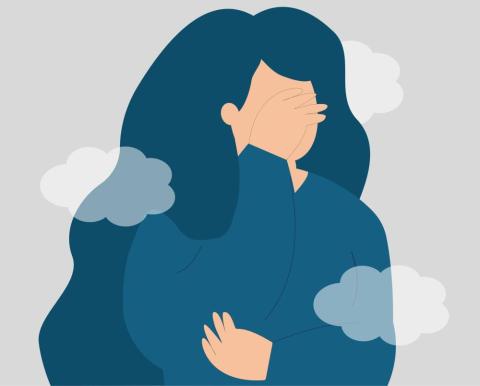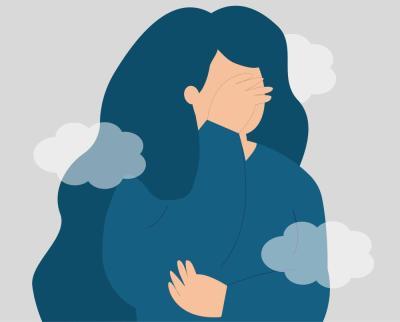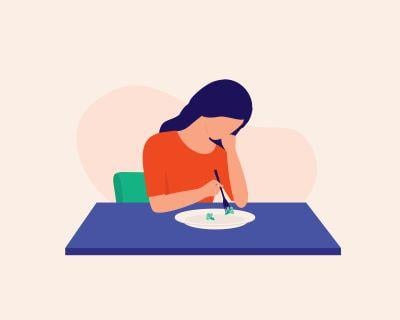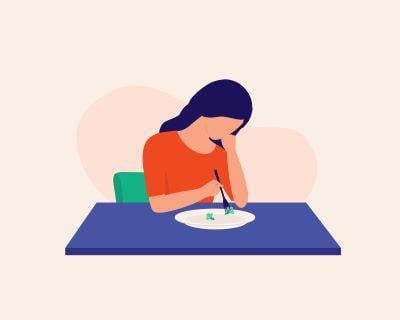Everybody worries at times. It’s normal to worry about things like school, how you look, what you said or did in a certain situation, how your parents will react to something you did, or what the future will bring. But OCD takes worries and doubts to the extreme.
For example, most people have thoughts about others spreading germs or doubts about whether they locked their front door. Usually these thoughts crop up and then disappear. But if they keep returning and cause you a lot of anxiety if you don’t wash your hands or repeatedly check the front door, it could be OCD.
Is It Really OCD?
OCD is diagnosed when a person has obsessions (thoughts that lead to anxiety, are intrusive, and repetitive) and compulsions (behaviors or mental actions done repeatedly to reduce anxiety. For a diagnosis of OCD, these obsessions and compulsions must…
- Take up an hour or more each day; for some kids, it's a lot more than an hour a day.
- Bother you a lot.
- Get in the way of your life, such as at school or work, with your family, or with other relationships, like with friends.
With OCD, you can’t get the obsessions out of your head, and the compulsions take up a too much time and energy. Unfortunately, no matter how many times you do the rituals, you feel better for only a while. And the more you do the compulsions, the stronger the obsessions seem to grow. Some people with OCD may have obsessions, but no compulsions; others have compulsions, but no obsessions.
Symptoms Common in Teens
There are so many different obsessions and compulsions that they can’t all be listed. Below are some of the more common examples:
- An obsessive fear of being contaminated by dirt, germs, viruses, blood, chemicals, or anything else that can result in compulsive handwashing, body washing, or even cleaning your room or home; avoiding touching others or shaking hands or public places.
- An obsessive uncertainty about something or fear of harm to yourself or others that may result in compulsive checking to make sure that doors or windows are locked or appliances are turned off.
- An obsessive fear of breaking religious rules or sinning that may result in compulsive praying, confessing sins, or believing that God is mad at you. This is called scrupulosity. Some people with this condition repeat a prayer until they get the wording “perfect” and, if interrupted, must start all over again.
- An obsessive need for symmetry that may result in a compulsive need to constantly arrange objects in a certain way.
- An obsessive need for perfection that may result in compulsively seeking reassurance, or compulsive revisions (including revisions to school work) so things are “perfect.”
- Sexual images or thoughts that come into your head and make you feel uncomfortable, such as a person who you are not attracted to naked. These images don’t make you feel good—in fact they make you feel really uncomfortable.
Remember that instead of getting weird or scary thoughts, OCD sometimes makes you have certain urges or feelings that you “have to do” something until it looks, sounds, or feels just right. So at school, you may have to get in and out of a chair many times until it feels right. Or maybe you have to keep arranging things in your desk. Maybe the way your mom said “good night” wasn’t right, so you keep asking her to say it. You might even just have an urge to tie and retie your shoelaces until it seems OK to stop.
OCD doesn’t have to rule your life. If you’re struggling with symptoms, ask your parents to help you get treatment for OCD. It won’t go away by itself. Treatment works.
Other Symptoms That Might Be OCD
OCD symptoms can be as varied as the people who have them. But there are some warning signs that can indicate OCD or another disorder. Remember, OCD and other disorders are treatable. Could any of these situations describe your situation?
- You take so much time getting dressed in the morning that you’re always late for school. Between classes, you have to repeat certain actions (like checking your locker) or mental rituals (praying, counting, saying certain phrases) so you’re late for the next class. When you’re leaving a room, you have to keep going in and out until it finally feels OK to leave it; or you go up and down stairs so many times until it feels right that you’re exhausted and late for your ride, the bus, your next class, meals, or wherever you should be next.
- You have a lot of trouble paying attention in class or concentrating on homework assignments because you’re constantly thinking about your fears or bad thoughts, and you’re trying not to perform the actions that make you feel better. And you’d be embarrassed if anyone saw you perform your compulsive actions in class or in public.
- You can’t complete in-class or homework assignments because they’re not done well enough or aren’t right, and you always seem to run out of time.
- Your compulsive actions take up so much time at night that your homework not done and you’re up so late that you don’t get enough sleep. You’re so tired the next day that you can barely make it through your classes.
- Your grades have really slipped, and you realize your obsessions and compulsions are getting in the way of studying, participating in class, or completing homework assignments.
- You worry that when things touch the floor, they're contaminated, so you can't pick them up to throw them away. You worry that you've contaminated things you touch in a store, so you buy them to prevent others from getting contaminated. You have a magic number, and you have to buy items in multiples of that number so things pile up in your room, locker, or desk.
- Your uncontrollable fears, worries, and unwanted thoughts are severely straining your relationships at home, with friends, or at school.
- You’re afraid you might seriously hurt someone because you can’t stop thinking about it, or you keep having violent or bizarre thoughts about harming others.
- You believe your thoughts can actually cause things to happen or not happen.
If any of this sounds like you, speak up now. The sooner you start getting treatment, the sooner you'll feel better.
What Else Coexists With OCD?
Other mental health disorders frequently occur with OCD. In fact, most people with OCD have at least one other co-existing disorder. A trained mental health professional can diagnose and treat these conditions as well as OCD. Below are disorders that commonly occur with OCD:
Anxiety disorders involve excessive fear and anxiety and related behavioral problems. They include separation anxiety disorder, generalized anxiety disorder, panic disorder or panic attacks, social anxiety disorder, and phobias such as fear of snakes or heights.
Depression symptoms include feelings of sadness, a hopeless mood, weight loss or gain, difficulty sleeping, and a loss of interest in usually pleasurable activities that last more than two weeks.
Bipolar disorders, which include bipolar I and bipolar II, are characterized by extreme changes in mood, thought, energy and behavior.
Attention deficit hyperactivity disorder (ADHD) includes three types, and they occur in children, teens, and adults: predominantly inattentive presentation; predominantly hyperactive-impulsive presentation; and combined presentation.
Autism spectrum disorder includes people with various levels of difficulties with social communication and social interaction. They may also display restricted, repetitive patterns of behavior, interests, or activities (e.g., spinning coins, preoccupation with vacuum cleaners).
Tourette’s syndrome involves motor and vocal tics that occur for more than a year and are present before age 18. Tic disorders are sudden, rapid, recurring, non-rhythmic motor movements (e.g., blinking, shrugging shoulders) and vocalizations (e.g., sniffing or grunting).
Eating disorders involve serious difficulties with eating or eating-related behavior. They include anorexia nervosa: constantly limiting food intake that leads to significantly low body weight, fear of gaining weight (or behavior that interferes with weight gain), and a disturbed self-perception of weight or shape; bulimia nervosa: binge eating (episodes of uncontrollable eating) accompanied by behaviors to make up for overeating, such as self-induced vomiting, using laxatives inappropriately, excessive exercising, and overly judging oneself by body shape and weight; and binge-eating disorder: recurrent overeating that is not accompanied by behavior to compensate for overeating.
Hoarding disorder involves extreme difficulty discarding possessions that others would find useless. A person with hoarding disorder believes these items are useful, have value, or has formed an emotional attachment to them. The need to save items and the distress associated with getting rid of them lead to an accumulation of clutter that can obstruct living areas, often making them unsafe or even hazardous.
People with body dysmorphic disorder (BDD) are overly focused or preoccupied with perceived bodily flaws. Excessive, repetitive behaviors or mental acts are performed in response to these concerns (such as excessive grooming or repeated checking in mirrors). LINK TO ADAA pages
Trichotillomania involves the repetitive pulling out of hair on the body, leading to hair loss (commonly in the eyebrows, scalp, and eyelids), as well as repeated attempts to reduce or stop hairpulling.
Excoriation disorder is repetitive skin picking that results in noticeable (or hidden) damage to the skin (e.g., scabs, sores). As with trichotillomania, a person with this disorder makes repeated attempts to reduce or stop skin picking. Other body-focused repetitive behaviors include nail biting, lip biting, and cheek chewing, which are accompanied by attempts to decrease or stop the behavior.
While it may be hard to tell your parents, teacher, or another adult you trust that you’re experiencing symptoms, you can get better a lot faster if you don’t keep hiding the symptoms. You need to be evaluated by a doctor so you can get the right treatment for the right problem. You owe it to yourself to get better and get back to enjoying life.
















